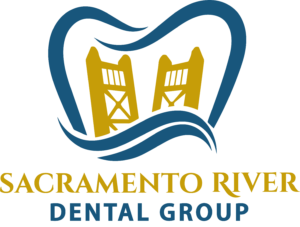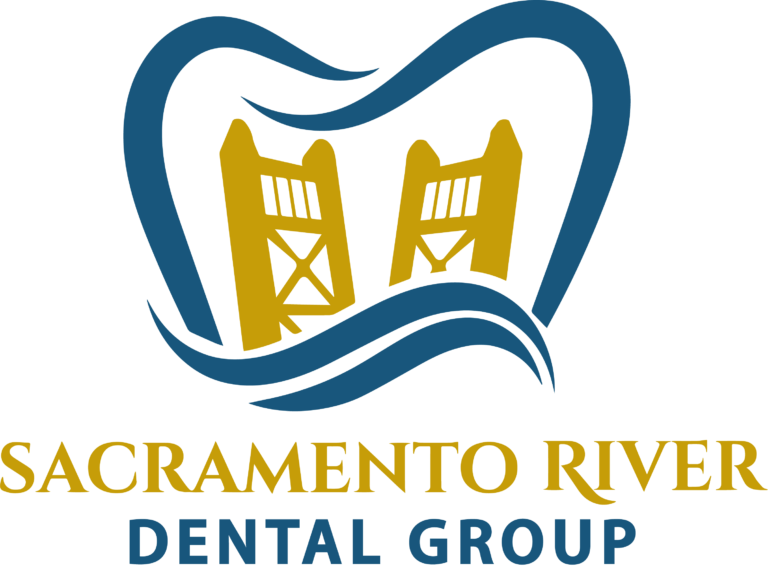Health and Aesthetic Impacts of Different Crooked Teeth Problems
Many people view crooked teeth as an aesthetic concern, but did you know they can have serious health implications?
Crooked teeth can lead to various health problems, affecting not just your smile but also your oral and overall health. According to studies from the Cleveland Clinic, untreated misaligned teeth, also known as malocclusion, can negatively impact self-esteem, leading to social anxiety, and may even contribute to temporomandibular joint (TMJ) disorders, causing chronic pain.
This blog post will discuss seven common crooked teeth problems and how they can affect your health, offering insights into how to address them. By understanding the specific health risks associated with each type of misalignment, you’ll be better equipped to seek the right treatment. Let’s dive into the most common crooked teeth problems, their causes, health impacts, and recommended treatments.
Crowded Teeth
Crowded teeth are one of the most prevalent crooked teeth health issues, caused by a lack of room in the jaw for teeth to align properly. Teeth that are not aligned appropriately may overlap, twist, or rotate, making it challenging to clean in between them. Crowded teeth can result from childhood behaviors like thumb-sucking or continuous use of pacifiers, according to the Cochrane analysis. Crowding may also result from early tooth loss in adults, since adult teeth may move into the gaps and become misaligned.
Issues Caused By Crowded Teeth:
Increased Risk of Tooth Decay and Gum Disease: The misaligned teeth create tight spaces that are hard to clean, making it easier for plaque to accumulate, leading to tooth decay and gum disease.
Jaw Pain and TMJ Disorders: Crowded teeth can cause improper jaw alignment, leading to TMJ problems over time.
Speech Difficulties: Severe crowding may cause difficulties in pronouncing certain words and can affect speech patterns.
Treatment Options:
- Braces on Crooked Teeth: Traditional metal braces or ceramic braces can gradually move teeth into the correct position over time.
- Clear Aligners: Clear aligners like Invisalign are ideal for mild to moderate cases, providing a discreet solution for crowded teeth.
- Tooth Extraction: In severe cases, the extraction of one or more teeth may be necessary to create sufficient space for the remaining teeth to align properly.
Overlapping Teeth
A particular type of crowding that occurs when one or more teeth partially cover another is called overlapping teeth. The same factors that lead to crowding, like a small jaw size, thumb-sucking, or the early loss of infant teeth, also frequently result in this syndrome. Teeth that overlap can cause a number of problems, such as increased plaque accumulation and trouble speaking.
Numerous issues might result from teeth that overlap. Speech is one of the most prevalent problems. Overlapping teeth affect how the tongue naturally positions itself during speech, which can cause articulation problems and make it harder to pronounce some sounds effectively. Eventually, this can develop speech impairments. Furthermore, an uneven bite from overlapping teeth frequently results in increased pressure on the jaw.
This imbalance can result in jaw pain and, in some cases, contribute to temporomandibular joint (TMJ) disorders. Misalignment of the teeth can create strain on the muscles around the jaw, leading to chronic pain, headaches, and discomfort when chewing or speaking
Treatment Options:
- Orthodontic Braces or Aligners: These options can effectively correct overlapping teeth by gradually shifting them into proper alignment.
- Retainers: Retainers are often used after braces or aligners to maintain the teeth’s position and prevent them from shifting back.
Gapped Teeth (Diastema)
Gapped teeth, also known as diastema, refer to spaces or gaps between teeth. Gaps can form due to an oversized labial frenum, missing teeth, or naturally small teeth. While some people embrace gapped teeth as part of their smile, it can lead to oral health problems if left untreated.
Beyond its cosmetic implications, dyspepsia can result in a number of oral health complications. The emergence of an uneven bite is one prevalent issue. The bite becomes misaligned when there are large gaps between the teeth, which puts stress on the jaw muscles since they have to work harder to close the gaps.
Furthermore, tooth gaps create additional spaces where food particles could easily get stuck. This problem raises the possibility of inflammation, gum irritation, and periodontal disease development. Because there are fewer teeth to trap debris, the gums are more exposed and susceptible, which can hasten the onset of gum disease and make it more difficult to treat if left untreated.
Treatment Options:
- Clear Aligners or Braces: These can help move the teeth closer together, reducing the gaps.
- Veneers: Veneers provide a quick cosmetic solution for small gaps, but they do not address functional issues like improper bite alignment.
- Dental Bonding: A composite resin can be applied to fill minor gaps, improving the appearance and function of the teeth.
Overbite
An overbite is when the upper front teeth excessively overlap the lower front teeth. This condition, however, can range from mild to severe. It is often caused by genetics, prolonged thumb-sucking, or developmental jaw issues. A severe overbite can lead to problems such as tooth wear, gum recession, and jaw discomfort.
Problems Caused By Overbites:
Tooth Wear: When the upper teeth overlap the lower teeth too much, it can cause excessive wear on the lower teeth.
Gum Recession: An overbite can place too much pressure on the front teeth, leading to gum recession over time.
TMJ Disorders: Overbites can cause the jaw to misalign, contributing to TMJ pain and headaches.
Treatment Options:
- Braces: Traditional braces can effectively reposition the teeth to reduce the overlap.
- Clear Aligners: For less severe overbites, clear aligners can provide a less noticeable treatment option.
- Jaw Surgery: In severe cases, surgical intervention may be needed to correct the alignment of the jaw.
Underbite
An underbite is the opposite of an overbite, where the lower teeth extend past the upper teeth. This condition can result from genetic factors, jaw injuries, or childhood habits. An underbite often causes facial asymmetry, chewing difficulties, and even chronic jaw pain if not addressed early. An underbite can make it challenging to bite into and chew food properly. The misalignment of teeth places stress on the jaw joints, potentially leading to TMJ disorders.
Treatment Options:
- Braces or Aligners: These orthodontic treatments can reposition the teeth and improve the bite.
- Orthognathic Surgery: Severe underbites may require jaw surgery to correct the alignment and reduce pain.
- Expanders for Children: Palatal expanders can be used to correct underbites in children before the condition worsens.
Open Bite
An open bite is a condition where the upper and lower teeth do not touch when the mouth is closed, often caused by habits like thumb-sucking or tongue-thrusting. This condition can lead to difficulties in chewing, speech impediments, and even affect the facial profile.
Open bites can present significant challenges when it comes to daily activities like eating and speaking. Individuals with open bites may struggle to bite into certain foods, especially harder items like apples, due to the lack of proper contact between the upper and lower teeth. This misalignment creates a gap that makes it difficult to exert the necessary pressure to bite effectively.
Treatment Options:
Behavioral Modification: Addressing habits like thumb-sucking and tongue-thrusting can sometimes fix minor open bites.
Braces or Aligners: These are commonly used to reposition the teeth into the correct alignment.
Jaw Surgery: In severe cases, surgery may be required to reshape the jaw.
Crossbite
A crossbite occurs when the upper teeth sit inside the lower teeth, leading to uneven wear on the enamel and gum recession. This condition can also be a cause of TMJ disorders and chronic jaw pain, making early intervention crucial.
Crossbites can lead to a range of oral health complications if left untreated. One of the primary concerns is enamel wear. Due to the misalignment, teeth often rub against each other unevenly, causing excessive friction. Over time, this constant rubbing erodes the enamel, which serves as the protective outer layer of the teeth. As the enamel wears down, it increases the risk of tooth decay and sensitivity, making teeth more susceptible to cavities and other dental issues.
Treatment Options:
Expanders for Children: Palatal expanders can correct crossbites in children.
Braces or Aligners: These are effective for adults with mild to moderate crossbites.
Jaw Surgery: Severe cases may require surgical intervention to correct the bite.
FAQ:
Q: What is the Cause of Crooked Teeth?
Crooked teeth may be caused by a combination of genetic, developmental, and behavioral factors. Genetics is important because people can inherit their parents’ jaw size or tooth position. In addition, tongue-thrusting, prolonged pacifier use, and thumb-sucking are childhood practices that might cause abnormal teeth alignment. Misaligned growth of adult teeth can also result from early tooth loss in infancy or from oral trauma sustained throughout childhood. A smaller jaw can result in crowding and misalignment. Environmental and dietary factors, such as the contemporary shift to softer, processed meals, may also be the cause of this issue.
Q: Can Crooked Teeth Be Corrected?
Yes, depending on how severe the misalignment is, crooked teeth can be straightened using a range of orthodontic treatments. For moderate to severe situations, traditional braces are the most popular option. They progressively realign teeth using ceramic or metal brackets. Invisalign and other clear aligners provide a less obvious solution for mild to moderately misaligned teeth. To correct severe misalignment of the jaw, surgery can be necessary in certain instances. Veneers can be utilized for little aesthetic enhancements, but they don’t address fundamental alignment problems.
Q: Is It OK if My Teeth Are Crooked?
Although there may not be any obvious health problems associated with mildly crooked teeth, it is nonetheless vital to evaluate the condition over time. Untreated troubles with orthodontics might result in a number of health issues. Teeth that are not positioned correctly might make cleaning harder and raise the risk of gum disease and tooth decay.
In addition, TMJ difficulties, jaw pain, and speech problems can result from severe misalignment. Furthermore, having crooked teeth might affect one’s confidence and sense of self. The degree of misalignment and its effect on oral health can help establish whether treatment is required. Speak with a dentist about this.
Q: How to Fix Crooked Teeth Without Braces?
In certain situations, straightening crooked teeth without braces is achievable, especially for mildly misaligned teeth. A common substitute that provides a discrete means of gradually moving teeth into the proper position are clear aligners. Dental veneers are an additional alternative for covering small flaws, however this method only addresses aesthetics and ignores functional problems. Expanders and other interceptive orthodontic procedures can occasionally save young children from eventually needing braces. Without the need for braces, behavioral changes like stopping thumb-sucking or tongue-thrusting can also help with mild cases of misaligned teeth.
To decide the best course of action, speak with a certified dentist or orthodontist if you have special concerns or a unique circumstance.
We Are Ready To Help!
If you’re experiencing crooked teeth problems that are affecting your oral health, now is the perfect time to seek professional help. The experienced dental doctors at Sacramento River Dental Group in Sacramento are here to offer you personalized care and comprehensive solutions. Whether you need orthodontic treatment for severe misalignment or cosmetic options like veneers to enhance your smile, their team will guide you through the best options for your dental health.
Don’t let crooked teeth cause further complications — schedule a consultation today with Sacramento’s trusted dental professionals to start your journey to a healthier, more confident smile!


